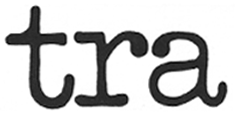IDEOLOGY - The term is used to describe the «science of ideas» regarding their origin, their formation and the ways they ere associated. In its modern, most current meaning IDEOLOGY is the system of principles and of generai doctrinal and programmatic orientation that inspires a political movement, and on which a movement grounds its characteristic work of ioersuation and propaganda. For Marx and Engels, ideology signified «false consciousness», and the relationship between the social situation and its ideai expression appears reversed, in the illusion that it is the latter which conditions the former and not vice versa. In a broader sense, IDEOLOGY denotes that generai way of thinking and dogmatic heritage which .corresponds to a determined epoch and, more preciseiy, which expresses the position, the interests and the aspirations of a given social ciass in a given moment of history. THE IDEAS OF THE RULING CLASS ARE IN EVERY AGE THE RULING IDEAS. (Marx) ldeology, then, as idea and consciousness. More specifically, ideology points out the unhappy role of the artist who finds himself working in a special field compieteiy cut off from reality and from social contact. He is unabie to participate in the movement to establish a coneeptuation of culture, unabie to paticipate in the agreement as to the authentic expression of being and feeiing part of the coliectivity, as to the direct function of one's evolving out of social conditions and then of the changing power relations among the competing groups in society. The artist is doomed (uniess he identifies himself in a new role and function) to act in a special sector where art becomes the «production of the superfluous» and superstructure, in that aiready superstructered background that is bourgeois culture. The artist is conscious of a subordinate and asocial role and, further, of the inherent contradiction between his formation and the produetion that the same intellectuals bound to the system propose in the illusion of transforming it. This consciousness becomes the starting point of a work that, taking off from the acceptance and utilization of a specific language of art, aims at overturning this same specificity, in the strategy of transforming reality through the assumption of alternative cuiturai patterns. These new, upsetting models (proletarian culture) constitute a rejeetion of the existing patterns, one that reaches out to crush those schemes (typical of bourgeois culture) which tend to, on one hand, desensitize and categorize the coliective publie into and indistinct mass and, on the other hand, attempt a tactical liberaiization designed to integrate the intellectual into the system. ]deology (false consciousness) becomes support for the elaboration of techniques of aggression against the individuai criticai consciousness. Individuai consciousness, nonetheless resiiiant, continues to survive and oppose the values of its culture (that is, its own ideoiogy) aginst myths and rites which wouid destroy it. Consequentiy, there exits ideologies counterposed and in conflict because there exist ciasses counterposed in power struggies that are only tenuously blanced. There is no denying that the movement has reached such a force of negotiation and such presence as to disciaim ihe thesis of a single hegemonic ciass. The movement of workers, the proletariat ciass, . mposes a culture of its own, denying the ~abel of «a vast anonymous mass incapabie of reaction». The working class has not only never justified such and assertion but has, on the contrary, proposed a mode] of life and action sharpiy juxtaposed to that of the bourgeoisie, countering its mass hermitage, superficiality, abuse and isolation. The workers movement has, in other words, refuted and refutes the widespread belief that the workers accept bourgeois culture just as if it were its own spiritual and ideological heritage. We cannot, however, define bourgeois culture as the culture of a capitalistic society. The intellectual has had and stili has a relative autonomy of movement inside the system, so that we often find ourselves facing two opposing lines, not so much on problems of formai choices as on the idea of the function of art and of the intellectual in confronting reality (relation between FUNCTIONFORM). There is, after ali, a possibility of relation between the intellectual and society based upon a diversification of the role and of the function of the intellectual himself. This overthrowing of the ruies requires alternative modeis, ones that oppose the continuous destruction of consciousness through the prevalent channels of communication. The media represents one of the main supports of
← top page

